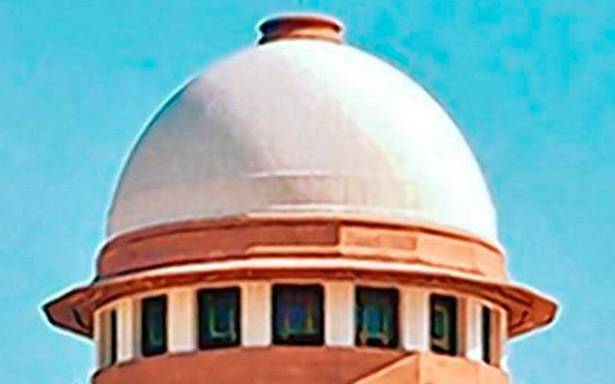They do not enjoy basic rights guaranteed under the Constitution like dignity and privacy, studies show
The Supreme Court has given the State governments and the Union Territories three months to take measures and ‘alleviate’ the violation of human rights suffered by women institutionalised in government-run mental health establishments.
A Bench of Justices D.Y. Chandrachud, Vikram Nath and Hima Kohli based its order on research conducted by NIMHANS, in 2016, and the National Commission of Women, as recently as in 2020, about the deprivations suffered by hundreds of mentally-ill women in institutional care.
In a 12-page order published on Thursday, the Bench highlighted that the research on the plight of these women indicates gross violation of the Mental Healthcare Act and other laws. They did not enjoy basic rights guaranteed under the Constitution like dignity and privacy, the studies showed.
Denied sanitary napkins
The women, the court quoted from the research, were denied sanitary napkins. Mothers were not allowed to keep their children. There were no separate mother-child wards in many of the government-run institutions. In fact, none of the women were remotely given a semblance of privacy. Their hair was shorn off and the authorities did not arrange any identity documents like Aadhaar. They were neither given disability certificates nor cleared for disability pension, the court recorded.
The plight of the women and the existence of these studies were brought to the attention of the court by advocate Gaurav Kumar Bansal in an application.
“The issues flagged in the application are of serious concern. The Ministry of Social Justice and Empowerment shall specifically raise each of the concerns which have been expressed in the research studies with the States/Union Territories…” the Supreme Court ordered.
Half-way homes
The court directed the Ministry to take up the issues in the monthly meetings it had ordered to be held between the Centre and the State governments to monitor the progress in the establishment of half-way homes for cured mentally-ill persons who needed a place to stay.
In July, the court was shocked to find that States like Maharashtra and Uttar Pradesh have been pushing cured patients into beggar homes, women’s hostels and old-age homes which double up as half-way and rehabilitation homes. The court said Uttar Pradesh’s move to re-designate existing old age homes and hostels as half-way homes was mere “lip-service”.
The court has directed the Centre to create an online dashboard for States to individually provide real-time data on half-way homes, facilities provided, capacity, occupancy and their region-wise distribution. The States have to update the data within four weeks of the creation of the online dashboard by the Centre.
The court scheduled the case for December 14.
Source: Read Full Article

